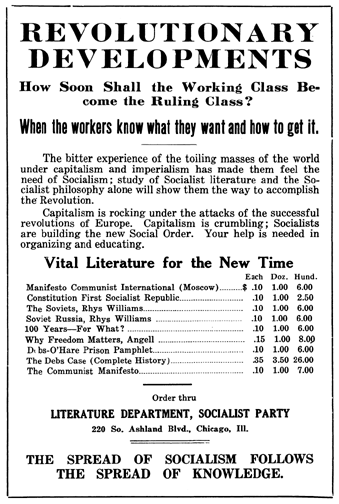American Suffragism and German Socialism: What's the Connection?
Joseph Blevins
Tell All the Men Why: Sexism and the Anti-Suffrage Movement
Men! As you sweat behind every blow of the hammer and push of the plow, worry not of your household! Your wife has your children healthy and fed, your larder full, and your home in order. Enlist Now! As you sink downward into the mud, your wife has your children healthy and fed, your larder full, and your home in order. Your work is rewarded by a say in our country’s esteemed government. You dominate your work, the enemy, your home, your country, your family, and your woman.
In the early 20th century, the disenfranchisement of women became vocal social discontent. Directly betraying male authority to what he saw as his, women across Europe and the United States organized themselves to demand suffrage. This subversion also challenged the nation itself, so Germany gained an easy propaganda victory mocking British War Secretary Herbert Kitchener and women for supporting the war effort.


Your Concern is Just to Bring Discomfort: Anti-Socialism and Anti-Suffragism
Just as suffragism was seen as anti-man and therefore anti-nation, anti-suffragism upheld all things a nation should be. As global industrialization rose and the urban workforce grew, socialism became popular in German and the United States among working classes. Quickly, socialist groups supported suffragism. Socialism, however, was branded a challenge to the sacrosanct nation by the 1910s. Opposition made suffragism and socialism synonymous. Both wished to tear apart the nation, the fearmongers said.
The Anti-Suffrage Party in the U.S. grew as a direct response to uphold social order, distributing buttons, handing out pamphlets, and flying pennants just as those for suffrage did. As part of a team, anti-suffragists also identified rising socialism among the working class as their opponent. In the U.S., few suffragists were socialist. In Germany, where socialism gained broad appeal, two distinct movements were born: socialist feminism and bourgeois feminism.


For the Union Makes Us Strong: American Socialist Activism

In the U.S., the American Socialist Party ran presidential candidate Eugene V. Debs four times from 1904 to 1920. Never earning more than 6% of the popular vote, it was clear socialism was a small factor in national politics. Instead focusing on unions and activism, activists spread socialism in the U.S. through pamphleteering and selling socialist literature which gained general appeal across unrepresented working classes as it did in Germany. Though a Socialist Party candidate was never elected to federal office in the U.S., the most dominant political parties in Germany after the end of monarchy in 1918 were led by socialists.

Weil der Mensch ein Mensch Ist: German Socialist Suffragism
International cooperation was key to gaining suffrage, socialist leader Clara Zetkin believed. She wrote letters organizing socialist women’s conferences and pushed to include women’s suffrage to the platforms of European socialist parties, like in one to Danish feminist Ruth Gustafson. Taking inspiration from the U.S., Zetkin advocated for the creation of an International Women’s Day on March 8—still celebrated on that date.
However, as enemies in WWI, any cooperation between German and American suffrage movements ceased. International socialist cooperation also chilled, especially as German socialists planned revolution against the crumbling empire and American nationalism caused socialism to wane. By war’s end in 1918, the U.S. forsook its own German heritage and claimed victory over the German.
Women in Germany were granted suffrage in 1919 and American women in 1920.



Bibliography
Bridenthal, Renate, Susan Mosher Stuard and Merry E. Wiesner. Becoming Visible: Women in European History. 3rd ed. Boston: Houghton Mifflin, 1998.
Brueske, Megan. Feminist Manifestos: A Global Documentary Reader. Edited by Weiss Penny A. New York: NYU Press, 2018.
Evans, Richard J. Proletarians and Politics: Socialism, Protest and the Working Class in Germany Before the First World War. London: Palgrave Macmillan, 1991.
Weitz, Eric. Creating German Communism, 1890-1990: From Popular Protests to Socialist State. Cambridge: Cambridge University Press, 1997.